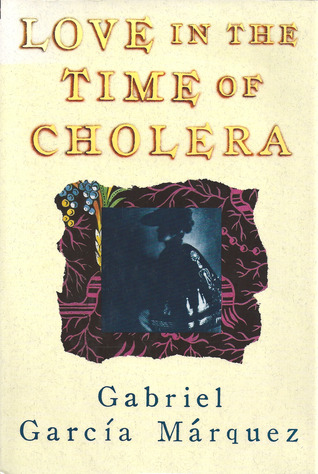Book Review: Love in the Time of Cholera by Gabriel García Márquez

Warning: Spoilers abound!
Wow, this book really didn’t age well. It’s a sex-obsessed novel in which everyone’s fucking like they have nothing else to do. The only one who doesn’t is Fermina Daza, the object of our main character’s desire.
The novel conflates sex with love at best, and at worst glorifies sexual violence and pedophilia. The main character, Florentino Ariza, loses his virginity as a young man to an anonymous female passenger on board a steam ship and becomes semi-obsessed with her. One of his lovers later in life had been raped and subsequently became obsessed with finding and marrying her rapist. Florentino Ariza, as a 70-year-old, meets a 14-year-old girl as she disembarks from a ship on her way to boarding school. He strikes up a relationship and grooms her until her “flower” blooms or some shit before escorting her from the school yard to his home so they can bang.
These passages are depicted in florid prose that completely ignore the moral failings that would have probably existed in this society at this time, and absolutely did exist in 1988 when the book was published. At points, it feels like narrative wish fulfillment in the creepiest way and I’m surprised that it’s heralded as one of GGM’s better books.
There’s no denying that the prose has all the elements of what makes GGM’s writing a pleasure to read, but it doesn’t feel like there’s a whole lot of substance bolstering the narrative. Florentino Ariza pines for decades over his lost love, Fermina Daza. He keeps the fire burning through years worth of other meaningful relationships (some of which last decades, but which Florentino Ariza maintains are just sexual), and upward career movement. Then, when he and Fermina Daza are in their 70s, Fermina Daza’s husband dies and he finally has his chance to declare his love, which he does.
Let’s say that Florentino Ariza is a Central American version of Humbert Humbert. GGM is garnering our sympathy for his lost love despite all the creepy shit he does throughout his life. Why? As the narrative changes point of view, we still view love from the perspective of his lovers through very similar attitudes, which seem like they’d find everything Florentino Ariza does as not only acceptable but as worthy of sympathy and glory. It’s like they’re saying, “Yes, this is how love is,” instead of, “Look how messed up this guy’s become.” It doesn’t feel like the book’s purpose is to bring a reader to empathize with a reprehensible character.
Toward the end, we find out that Florentino Ariza’s young ex-lover kills herself, presumably out of grief for losing him to Fermina Daza, and while he feels awful about it, that feeling seems to pass pretty quickly given that he gets to be with Fermina Daza. We get a brief view of Florentino Ariza’s reputation as a low-life pervert, but we’ve spent so much time, comparatively, with his like-minded friends glorifying his lifestyle that it doesn’t really matter. He faces no consequences and expresses no remorse for his role in a young girl’s suicide.
Consequences, however, aren’t the point of the novel. Love is, in all its forms, but primarily the notion of undying, eternal love. And to that end I can see why people appreciate it for that, but story feels undercut by a lack of acknowledgement of the people who suffered because of it. Ignoring that aspect of suffering because of love makes the story read as a little incomplete, and I consequently found it difficult to take the trajectory of Florentino Ariza’s life seriously.
I really don’t know about this book. I wanted to love it, but I can’t help but wonder if I missed something.